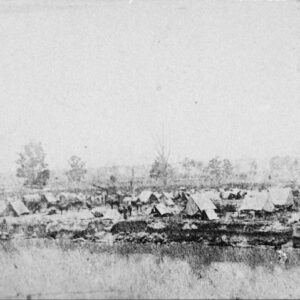Tag: Morganza Bend (Mississippi River)
Wikipedia says: Morganza is an incorporated village near the Mississippi River in Pointe Coupee Parish, Louisiana, United States.
Morganza takes its name from Morganza Plantation, the antebellum holding of Charles Morgan, an early surveyor, political figure and first American sheriff of Pointe Coupee Parish. Morgan, the son of James Morgan from a town of the family’s name in Sayreville, New Jersey, and a captain in the Second Regiment of the Middlesex County (N.J.) militia during the Revolutionary War. Evidence indicates he was involved in the transfer of slaves from New Jersey to Louisiana in conflict with New Jersey law. The U.S. Post Office opened in 1847, closed some years later, and reopened in 1899. Members of the Campbell family held the position of postmaster until 1970. The town was not incorporated until 1908.
Civil War
Morganza was the site of a Union Army encampment during the American Civil War. The largest battle in Pointe Coupee Parish was fought at nearby Stirling Plantation, on September 29, 1863. Sixteen Federal troops were killed, 45 were wounded, and 462 were taken prisoner. The Confederate losses included 26 dead, 85 wounded, and 10 missing. Although the Battle of Sterling Plantation was a Confederate victory, the Union troops burned the town of Morganza to the ground on October 1, 1863.
Historian John D. Winters in The Civil War in Louisiana (1963) documents the arrival in May 1864 of Federal troops in Morganza under General Nathaniel P. Banks, recently defeated in the Battle of Mansfield in DeSoto Parish and abandoning the Red River Campaign. According to Winters,
The unbearable heat drove the men to construct arbors and bowers to shield themselves from the sun. In a short time an orderly city of tents and company streets stretched along the banks of the river between the water and the levee. Early in the morning and in the late evening the troops were called out for drill periods and gymnastic sports, but most of the day they were free. They spent much of this time lounging in their tents and in the shade, wearing as little clothing as regulations would allow. Some of the men braved the sun and went fishing, or swimming, or visited the sutlers’ tents. For more than a month the sweating troops lazed away the long, hot summer days with only an occasional review or alarm to break the monotony. The heat and the excessive rainfall began to tell upon the troops . . . Epidemics of scurvy, chronic diarrhea, swamp fever, and smallpox began to take an appalling toll. Many times a day the death march sounded, and new victims were carried to their graves along the river bank.”.
Showing the single result
